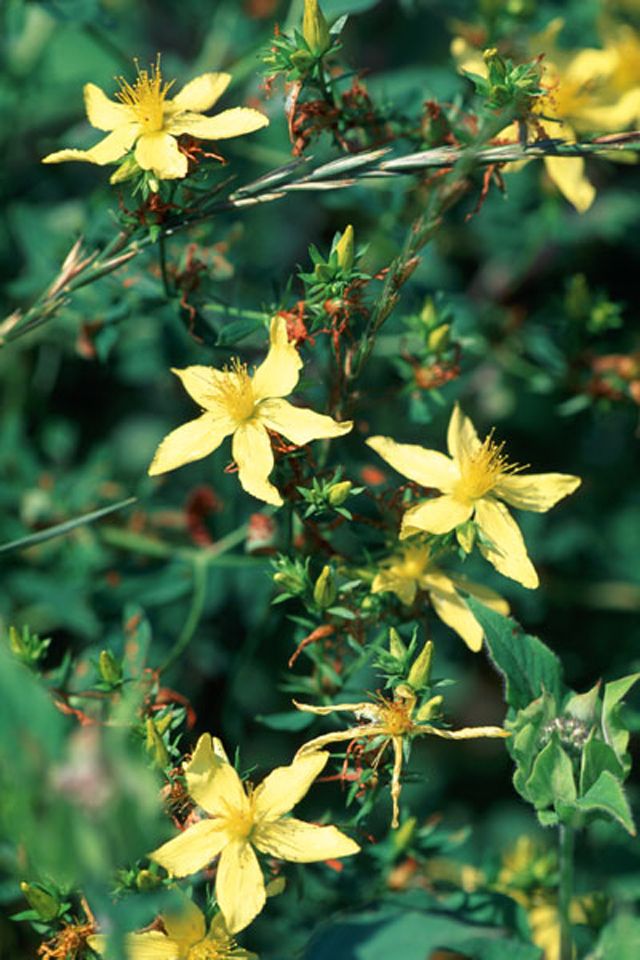Herbal Groups Point to Flaws in CSPI Petition for St. John’s Wort Warning
The American Botanical Council calls CSPI’s science “inadequate and inaccurate.”

Two organizations are pointing to numerous inaccuracies in a citizens’ petition sent to FDA by a nonprofit group in November that asked the agency to require strong warning statements for the herbal ingredient St. John’s wort(Hypericum perforatum). The FDA petition was sent by the Center for Science in the Public Interest (CSPI; Washington, DC), which based its request on purported possible negative interactions between St. John’s wort and some prescription drugs.
Groups Respond
The American Botanical Council (ABC; Austin, TX), an independent, nonprofit research and education organization, and dietary supplements industry association the American Herbal Products Association (AHPA; Silver Spring, MD) responded to CSPI’s petition, with ABC calling CSPI’s science “inadequate and inaccurate.” ABC notes that when it reached out to FDA about the petition, an agency representative stated that the agency will give the CSPI petition “careful consideration.”
The December issue of ABC’s monthly electronic newsletter HerbalEGram provided a detailed article discussing CSPI’s petition and the science on St. John’s wort and drug interactions. (According to ABC and its 2010 Herb Market Report, St. John’s wort was the ninth best-selling herbal dietary supplement in the U.S. food, drug, mass market.)
Notably, the HerbalEGram article and the experts it quotes criticize CSPI’s petition for not making a distinction between St. John’s wort with high hyperforin levels versus St. John’s wort with low hyperforin content. (ABC describes hyperforin as the herb’s major antidepressant active ingredient.)
The article acknowledges that hyperforin “has been found to be the main cause of the herb’s impact on drug metabolism, absorption, and bioavailability.” However, ABC also quotes Australian and German researchers as stating in a 2011 letter to the editor in Pharmacological Research, “St. John’s wort extracts with a low hyperforin content (less than 1 mg daily) have not demonstrated any clinically relevant interactions so far.”
“I don’t have a problem with reasonable and appropriate warning labels for high-hyperforin products used orally for greater than a week, but that needs to be specified,” HerbalEGram quoted Francis Brinker, ND, a clinical assistant professor at the University of Arizona’s College of Medicine and author of Herbal Contraindications and Drug Interactions plus Herbal Adjuncts with Medicines (4th ed., 2010), which includes a chapter on St. John’s wort drug interactions.
Also, both ABC and AHPA significantly note that CSPI’s blanket warning does not reflect that potential interactions largely depend on the specific drug, the supplement, and patient in question.
Warnings Already Exist in Industry
Meanwhile, AHPA points out that the association’s own past Guidance Policy to its members has long suggested that St. John’s wort products be labeled to warn consumers taking them to also seek the advice of a physician if taking prescription drugs.
“CSPI has not discovered any new information but is only acknowledging what AHPA has known for many years with regard to the possibility for some St. John’s wort ingredients to interact with certain drugs,” said AHPA president Michael McGuffin, in a press statement. “But this information is already disclosed through the broad use in the herbal trade of AHPA’s labeling policy for St. John’s wort, and we do not agree that a black box warning-generally limited to only the most dangerous drugs-is warranted.”
AHPA’s chief science officer, Steven Dentali, PhD, added: “Prescribers of medications need to inform patients of possible food-drug and herb-drug interactions. Although specific drugs are not identified on the labels of grapefruit juice, leafy greens, or St. John’s wort extracts, it is widely known that these can affect drug metabolism. In the case of St. John’s wort, this concern is limited to certain constituents, as there is no indication that low-hyperforin products cause clinically significant drug interactions.”
Future Implications
“The CSPI petition asking for a warning for all SJW preparations equally for all drugs listed and for all medications in general is not a good application of pharmacological understanding," HerbalEGram quotes Dr. Brinker as stating. “If they choose to ignore those studies and preparations that were negative for specific interactions, it is equivalent to others ignoring the studies that were positive for the interactions.”
Brinker concluded: “The fact that CSPI states that this is the first herb for which they hope to require a (falsely exaggerated) warning label indicates that they must be held accountable for accuracy in this case so that it will be expected in future requests as well. If they are allowed to cherry-pick data now, they will do so again and again. The issue here is independent of current products on the market. A precedent is being set. The future is at stake.”
Standardized valerian extract shows acute sleep benefits after one day, says recent study
December 10th 2024Results showed that after a single dose, people taking the Valerian extract experiences an acute benefit on sleep, namely a significant increase in actual sleep time compared to baseline.